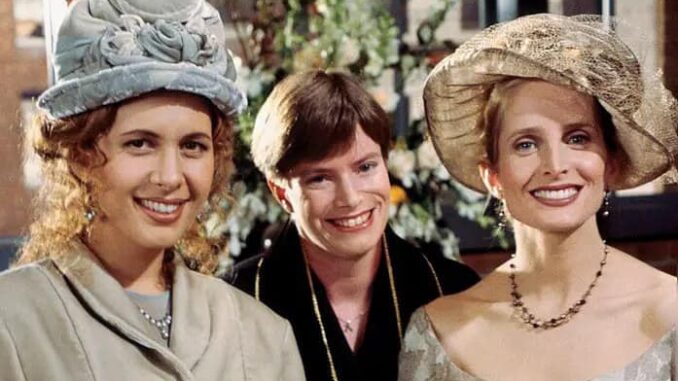
In 1996, Friends aired an episode titled “The One with the Lesbian Wedding,” which featured one of the show’s most groundbreaking storylines—a same-sex wedding between Carol, Ross’s ex-wife, and her partner, Susan.
This episode not only marked a significant moment in television history but also demonstrated the evolving cultural attitudes toward LGBTQ+ representation on screen. Following the airing of this episode, the producers of Friends took a proactive approach to address potential backlash, hiring 200 part-time staff members to field complaints. Remarkably, they received only 11 calls, reflecting a more accepting societal reaction than anticipated.
The episode was carefully crafted to be both respectful and humorous, striking a balance that allowed it to address serious issues while remaining consistent with the show’s comedic tone. By incorporating this storyline, Friends played a crucial role in normalizing LGBTQ+ relationships and contributing to the broader conversation about equality and acceptance. Anticipating potential controversy, the producers of Friends took the precaution of hiring 200 part-time staff members to handle any complaints that might arise following the broadcast of the episode. This decision reflected the producers’ awareness of the cultural sensitivity surrounding LGBTQ+ issues and their commitment to addressing any backlash in a structured manner.

The decision to prepare for a high volume of complaints highlights the producers’ understanding of the potential impact of the episode and their proactive approach to managing public reaction. By having a dedicated team in place, the producers aimed to ensure that any concerns could be addressed promptly and effectively. Despite the producers’ extensive preparations, the episode received only 11 complaints, a surprisingly low number given the context. This minimal backlash is indicative of a broader shift in societal attitudes toward LGBTQ+ issues. The relatively few complaints suggest that the episode resonated positively with a large portion of the audience and that the portrayal of same-sex marriage was increasingly accepted.
The low number of complaints also underscores the importance of Friends’ role in advancing LGBTQ+ representation in media. By addressing these issues with sensitivity and humor, the show helped pave the way for greater acceptance and understanding of LGBTQ+ characters and storylines in mainstream television. The impact of “The One with the Lesbian Wedding” extends beyond the immediate reaction of viewers. The episode is often cited as a milestone in television history for its role in promoting LGBTQ+ visibility and contributing to the normalization of same-sex relationships. The positive reception and minimal backlash demonstrated a growing societal acceptance and set a precedent for future television programming.
In the years following the episode’s airdate, Friends continued to address LGBTQ+ issues and promote diversity in its storytelling. The show’s willingness to tackle such topics with humor and empathy reinforced its reputation as a progressive and influential series.
